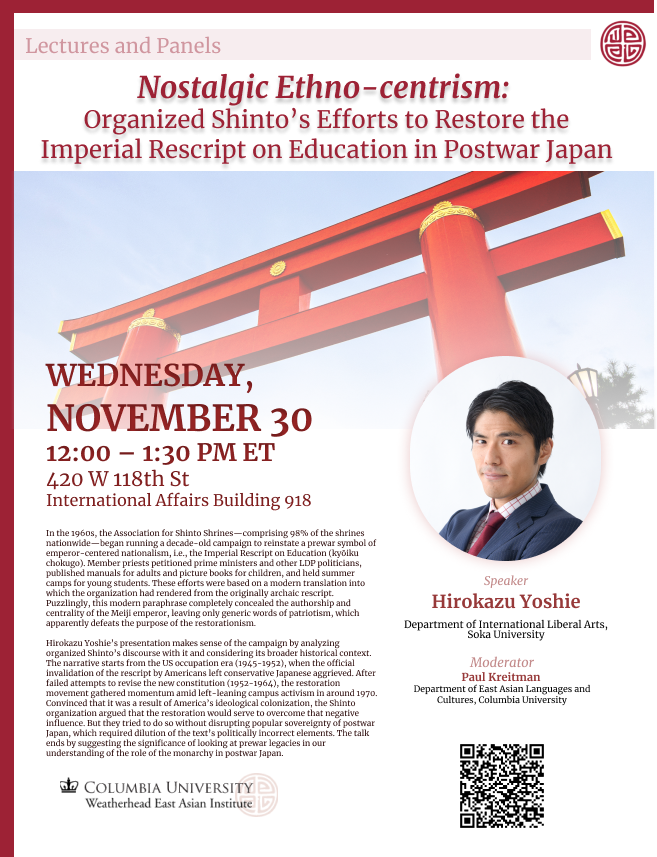Registration:
- To register to attend this event in-person, please register HERE. *Please note that non-CUID holders need to show proof of their primary series and one booster dose of COVID-19 vaccines.
- To register to attend this event online, please register HERE.
Speaker: Hirokazu Yoshie, Lecturer in History, Department of International Liberal Arts, Soka University.
Moderator: Paul Kreitman, Assistant Professor of 20th Century Japanese History, Department of East Asian Languages and Cultures, Columbia University
In the 1960s, the Association for Shinto Shrines—comprising 98% of the shrines nationwide—began running a decade-old campaign to reinstate a prewar symbol of emperor-centered nationalism, i.e., the Imperial Rescript on Education (kyōiku chokugo). Member priests petitioned prime ministers and other LDP politicians, published manuals for adults and picture books for children, and held summer camps for young students. These efforts were based on a modern translation into which the organization had rendered from the originally archaic rescript. Puzzlingly, this modern paraphrase completely concealed the authorship and centrality of the Meiji emperor, leaving only generic words of patriotism, which apparently defeats the purpose of the restorationism.
His presentation makes sense of the campaign by analyzing organized Shinto’s discourse with it and considering its broader historical context. The narrative starts from the US occupation era (1945-1952), when the official invalidation of the rescript by Americans left conservative Japanese aggrieved. After failed attempts to revise the new constitution (1952-1964), the restoration movement gathered momentum amid left-leaning campus activism in around 1970. Convinced that it was a result of America’s ideological colonization, the Shinto organization argued that the restoration would serve to overcome that negative influence. But they tried to do so without disrupting popular sovereignty of postwar Japan, which required dilution of the text’s politically incorrect elements. The talk ends by suggesting the significance of looking at prewar legacies in our understanding of the role of the monarchy in postwar Japan.
This event is sponsored by the Weatherhead East Asian Institute.

